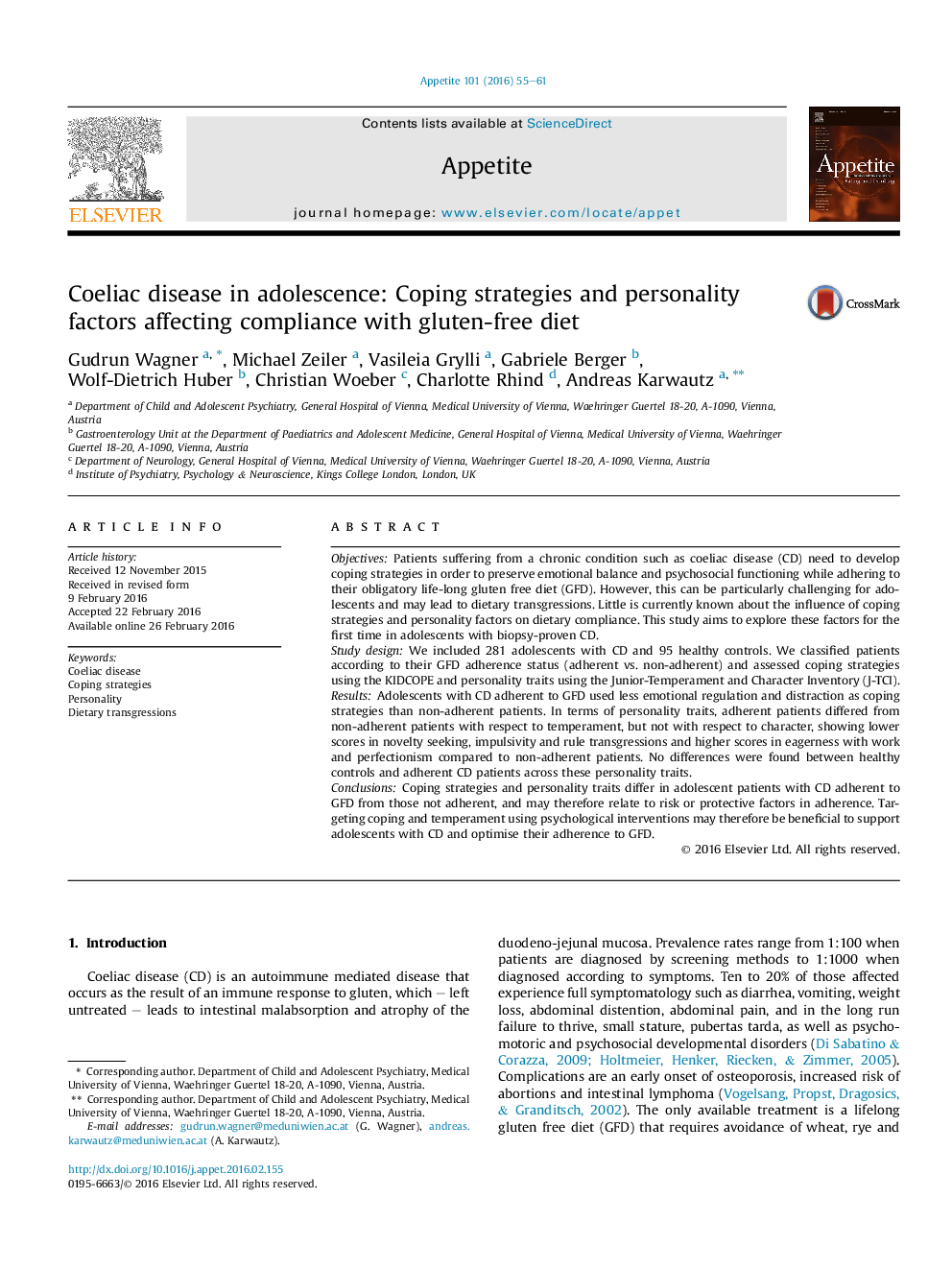| Article ID | Journal | Published Year | Pages | File Type |
|---|---|---|---|---|
| 939287 | Appetite | 2016 | 7 Pages |
ObjectivesPatients suffering from a chronic condition such as coeliac disease (CD) need to develop coping strategies in order to preserve emotional balance and psychosocial functioning while adhering to their obligatory life-long gluten free diet (GFD). However, this can be particularly challenging for adolescents and may lead to dietary transgressions. Little is currently known about the influence of coping strategies and personality factors on dietary compliance. This study aims to explore these factors for the first time in adolescents with biopsy-proven CD.Study designWe included 281 adolescents with CD and 95 healthy controls. We classified patients according to their GFD adherence status (adherent vs. non-adherent) and assessed coping strategies using the KIDCOPE and personality traits using the Junior-Temperament and Character Inventory (J-TCI).ResultsAdolescents with CD adherent to GFD used less emotional regulation and distraction as coping strategies than non-adherent patients. In terms of personality traits, adherent patients differed from non-adherent patients with respect to temperament, but not with respect to character, showing lower scores in novelty seeking, impulsivity and rule transgressions and higher scores in eagerness with work and perfectionism compared to non-adherent patients. No differences were found between healthy controls and adherent CD patients across these personality traits.ConclusionsCoping strategies and personality traits differ in adolescent patients with CD adherent to GFD from those not adherent, and may therefore relate to risk or protective factors in adherence. Targeting coping and temperament using psychological interventions may therefore be beneficial to support adolescents with CD and optimise their adherence to GFD.
